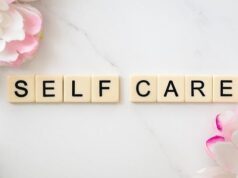When a friend finds themselves in an abusive relationship, the path to support can be fraught with challenges and emotional complexities. Witnessing someone you care about endure mistreatment takes a toll not only on them but also on you as a concerned friend. It’s crucial to approach the situation with empathy and understanding, recognizing that every abusive relationship is unique, shaped by its own set of dynamics and emotions. This article will delve into practical strategies for helping your friend navigate their difficult circumstances, offering insights on how to communicate effectively, what resources are available, and how to maintain a supportive presence without judgment. Your role can make a significant difference in their journey toward healing and empowerment. Together, let’s explore how to be that steadfast ally during their time of need.
Understanding the Signs of an Abusive Relationship
Recognizing the signs of abuse in a relationship can be challenging, especially since abuse often doesn’t present in obvious forms. Emotional abuse, for instance, can manifest as manipulation through guilt, isolation from friends and family, and controlling behaviors. Individuals may become withdrawn or show signs of anxiety, feeling they must seek permission for basic decisions. It’s crucial to be aware of sudden changes in behavior, such as:
- Extreme withdrawal from social activities
- Unexplained anxiety or changes in mood
- Self-blame or feelings of worthlessness
Additionally, keep an eye out for signs that suggest a person may feel trapped in their relationship. Emotional abusers often instill fear, making the victim afraid of upsetting their partner. This can lead to a decrease in self-confidence and reliance on the abuser for validation. Other indicators may include:
- Fear of conflict or upsetting their partner
- Persistent feelings of guilt surrounding their partner’s feelings or actions
- A sudden loss of interest in previously enjoyed activities
Empathetic Listening: Creating a Safe Space for Your Friend
When supporting a friend trapped in an abusive relationship, establishing a framework of empathetic listening is essential. This approach involves actively creating a comforting atmosphere where your friend feels secure to share their experiences and emotions without fear of judgment. To foster this environment, consider the following practices:
- Practice patience; allow them to express themselves at their own pace.
- Avoid interrupting; focus on listening more than responding.
- Use nonverbal cues, such as nodding and maintaining eye contact, to show your engagement.
- Refrain from offering unsolicited advice; instead, validate their feelings.
Empathetic listening goes beyond simply hearing words; it involves resonating with their emotions and understanding their perspective. Engage in reflective listening by:
- Paraphrasing what they say to ensure clarity and show understanding.
- Asking open-ended questions that encourage deeper exploration of their feelings.
- Providing reassurance that their experiences are valid and that they are not alone.
- Expressing compassion for their situation while maintaining a non-judgmental stance.
Educating Yourself on Abuse Dynamics and Effects
Understanding the complex dynamics of abuse is essential for anyone seeking to support a friend in an abusive relationship. Abuse often operates through psychological manipulation, making it vital to recognize the patterns and behaviors that define it. Familiarizing yourself with the warning signs can empower you to offer more informed assistance. Consider the following factors:
- Power and Control: Many abusers use tactics like intimidation and isolation to maintain dominance.
- Cycle of Abuse: Recognize that abuse can follow a pattern, including tension-building, explosive incidents, and periods of calm.
- Emotional Impact: Understand how emotional scars can linger, affecting self-esteem and decision-making.
Equipped with this knowledge, you can provide a more compassionate and effective response to your friend’s situation. Education also enables allies to approach the subject delicately, fostering an environment where your friend feels safe to share their experiences. It’s important to prioritize their feelings and autonomy, ensuring they feel respected throughout the process. Remember to:
- Listen Actively: Sometimes, just giving your friend a space to voice their concerns can be healing.
- Respect Their Choices: They may not be ready to leave their situation, and your support should reflect that understanding.
- Promote Resources: Familiarize yourself with local support services to guide your friend if they decide to seek help.
Approaching the Conversation with Sensitivity and Care
When approaching a sensitive topic like abuse, it is crucial to create a safe and supportive environment for your friend. Begin by choosing a private and comfortable setting where they feel at ease discussing their situation. Use open body language and maintain a calm tone to convey that you are there to listen without judgment. It can help to use gentle inquiries to encourage your friend to share their feelings, such as, “I’ve noticed you seem unhappy lately. Would you like to talk about what’s been going on?” This approach shows that you care and are willing to support them through their challenges.
As the conversation unfolds, be mindful of your friend’s emotional state. Reflective listening, where you summarize what they have shared, can reassure them that you truly understand their experience. Avoid making assumptions or offering solutions too quickly; instead, allow them to express their thoughts and fears at their own pace. You might find it helpful to use empathetic phrases like, “That sounds really difficult” or “I’m sorry you’re going through this.” Such expressions help to validate their feelings and foster a deeper sense of trust, encouraging them to open up further about their struggles in the relationship.
Helping Your Friend Identify Their Feelings and Options
It’s crucial to create a safe space for your friend to express their emotions without judgment. Start by encouraging them to talk about their feelings, reminding them that it’s okay to feel confusion, fear, or anger. They might struggle with recognizing their own emotions, especially if they have been minimized or ignored in the relationship. Offering supportive prompts such as: “How do you feel when they say that?” or “What do you think about what happened?” can help them articulate their experiences. Acknowledge the complexity of their feelings and validate their right to feel discomfort, reinforcing that they are not alone in this journey.
Once they begin to identify their feelings, guide them toward exploring their options. Help them list potential next steps they can take, whether it’s reaching out for professional help, confiding in someone they trust, or even contemplating a safe exit strategy from the relationship. Encourage them to consider what they need most during this time, which could range from emotional support to physical safety. Creating a list of resources such as hotlines, local shelters, or counseling services can empower them and remind them that there is help available if they decide to seek it. Ultimately, fostering their sense of agency is key to rebuilding their confidence and hope for the future.
Encouraging Professional Help: Therapy and Support Services
Encouraging your friend to seek professional help can be a vital step in their journey towards safety and healing. Therapy offers a safe space where individuals can explore their feelings and experiences without judgment. It may help to point out the potential benefits of talking to a trained professional, such as:
- Understanding Patterns: A therapist can help them recognize harmful dynamics in their relationship.
- Building Confidence: Therapy can empower them to reclaim their self-worth.
- Developing Coping Strategies: Professionals provide tools to manage stress and anxiety that often accompany abusive situations.
Additionally, consider suggesting support groups where survivors of abuse come together to share their experiences. These groups can offer invaluable peer support and a sense of community that helps combat isolation. It’s essential to reassure your friend that seeking help is a sign of strength, not weakness. Highlight the possibility of connecting with local services that specialize in abuse recovery, such as:
- Therapy sessions: Individual or group therapy tailored to their needs.
- Crisis hotlines: Immediate support when they need someone to talk to.
- Workshops: Focusing on self-esteem and personal safety.
Developing a Safety Plan Together for Exit Strategies
Creating a safety plan for your friend is essential in empowering them to navigate their situation with confidence. Begin by identifying safe locations they can go to in case of emergencies. These could include trusted friends’ houses, local shelters, or community centers. Consider recording important contact information and keeping a list of essential items to take when leaving, such as personal identification, money, and documents. Discuss the importance of having a discreet way to signal for help, whether it’s a code word or a specific text message that signifies danger.
Next, ensure your friend knows the process for exiting their space safely. This might involve mapping out the quickest routes from their home or common locations to safe zones. Arrange regular discussions to reinforce the plan, allowing them to share concerns or updates. Encourage them to practice this plan, emphasizing that preparation can reduce anxiety during critical moments. A well-thought-out exit strategy creates a sense of control, helping them feel supported and hopeful about the future.
Offering Practical Assistance: Resources and Housing Options
When supporting a friend in an abusive relationship, providing access to housing resources can be a crucial step in fostering their safety and autonomy. Consider directing them to local organizations that specialize in domestic violence assistance, offering programs that include emergency shelter and temporary housing options. Some potential resources include:
- Domestic violence shelters that provide a safe space for individuals fleeing abusive environments.
- Transitional housing programs that offer longer-term solutions while individuals rebuild their lives.
- Rental assistance programs to help secure affordable housing.
In addition to physical shelter, it’s essential to equip your friend with information about financial support and legal resources. Many community organizations provide financial assistance for housing costs, including utility bills and landlord mediation. Encourage them to explore options such as:
- Government-funded rental assistance programs that cater to those in crisis.
- Nonprofit organizations and churches that offer one-time financial help to secure safe housing.
- Legal advocacy groups that assist victims in navigating the legal system and obtaining protection orders.
Building a Support Network for Your Friends Recovery
Supporting a friend through the complexities of recovery, especially after an abusive relationship, requires creating a robust and compassionate network. This network should include understanding individuals who can provide emotional support, encouragement, and practical help. It’s essential to ensure that your friend feels they are not alone in their journey. Consider involving:
- Trusted family members: Family can be a strong source of comfort and stability.
- Close friends: A circle of loyal friends can share uplifting moments and memories.
- Professional help: Therapists or counselors can provide expert guidance tailored to your friend’s needs.
- Support groups: Connecting with others who have faced similar experiences can foster a sense of belonging and understanding.
To be effective, this support network should be built on open communication and trust. Encourage your friend to express their feelings and thoughts, and listen without judgment. Make sure to check in regularly, showing that you are there for them consistently. Additionally, create a safe space for them to share their experiences and fears. Acts of kindness, such as offering to accompany them to appointments or helping with daily tasks, can make a significant difference in their recovery process. By being proactive in your support, you can help your friend reclaim their life and build a healthier future.
Respecting Your Friends Choices and Independence
In any relationship, it’s crucial to maintain a balance between support and respect for personal autonomy. When your friend is in an abusive relationship, your inclination may be to intervene and guide them toward what you perceive as the safest path. However, it’s essential to remember that your friend has their own experiences, feelings, and reasons for their choices. Listening without judgment can foster an environment where your friend feels safe to express themselves. Encourage open dialog by asking gentle, open-ended questions, allowing them to articulate their thoughts and feelings without pressure. This approach not only respects their independence but also helps them to process their situation more clearly.
Moreover, it’s important to offer your support while acknowledging that the ultimate decision rests with them. Affirm their feelings and validate their experiences to empower them, rather than pushing them to make changes they may not be ready for. You can express your concerns without demanding action, thereby reinforcing their sense of control. Consider providing them with resources, such as information on local support services or hotlines, without forcing them to take steps they aren’t prepared for. By honoring their independence, you are nurturing trust, which is vital for them to reach out to you when they feel ready to seek help.
Fostering Long-Term Healing and Empowerment Post-Abuse
Healing from abuse is a journey that requires patience, support, and a commitment to self-care. It is essential for survivors to embrace strategies that foster resilience and empower them to reclaim their lives. Consider encouraging your friend to focus on:
- Rebuilding Self-Esteem: Engaging in activities that promote a sense of accomplishment and self-worth.
- Establishing Boundaries: Learning to assert personal limits in relationships to ensure their safety and comfort.
- Seeking Professional Support: Connecting with therapists or support groups specialized in trauma recovery.
- Practicing Self-Care: Incorporating daily routines that prioritize mental, emotional, and physical health.
Moreover, it is crucial for survivors to rediscover their inner strength and learn that their past does not dictate their future. Empowering them to set realistic goals can help in creating a vision for their lives. Encourage your friend to:
- Reflect on Personal Growth: Keeping a journal to track feelings, progress, and moments of joy.
- Explore New Interests: Trying new hobbies or activities that ignite passion and connect with supportive communities.
- Build a Support Network: Surrounding themselves with positive influences who respect and uplift them.
Concluding Remarks
As we navigate the complexities of supporting a friend in an abusive relationship, it’s essential to remember that every journey towards safety and healing is unique. The path may be fraught with challenges, but your compassion and understanding can serve as a guiding light in their darkest moments. Encourage open dialog, validate their feelings, and most importantly, remind them that they are not alone in this struggle.
While your support can be invaluable, don’t forget to care for yourself in the process. Supporting someone through this experience can take an emotional toll, so take time to recharge and seek support for yourself if needed. By fostering an environment of trust and safety, you can empower your friend to make choices that are best for their well-being. Together, with patience and resilience, you can help create a future full of hope and healing.




